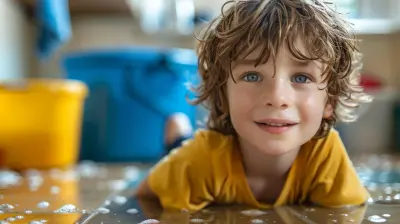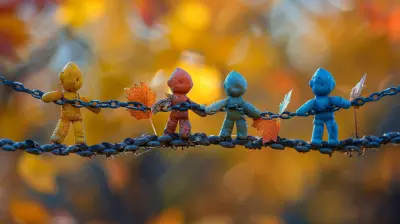How to Foster Early Communication Skills in Your Baby
4 April 2025
As a parent, one of the most exciting milestones in your baby's development is when they begin to communicate. From their first adorable babbles to their first spoken words, it's a journey worth every sleepless night. The truth is, babies start communicating long before they say their first word. And guess what? You play a crucial role in shaping how well and how soon they develop these skills.
So, how can you help your little one become a confident communicator? Let’s break it down. 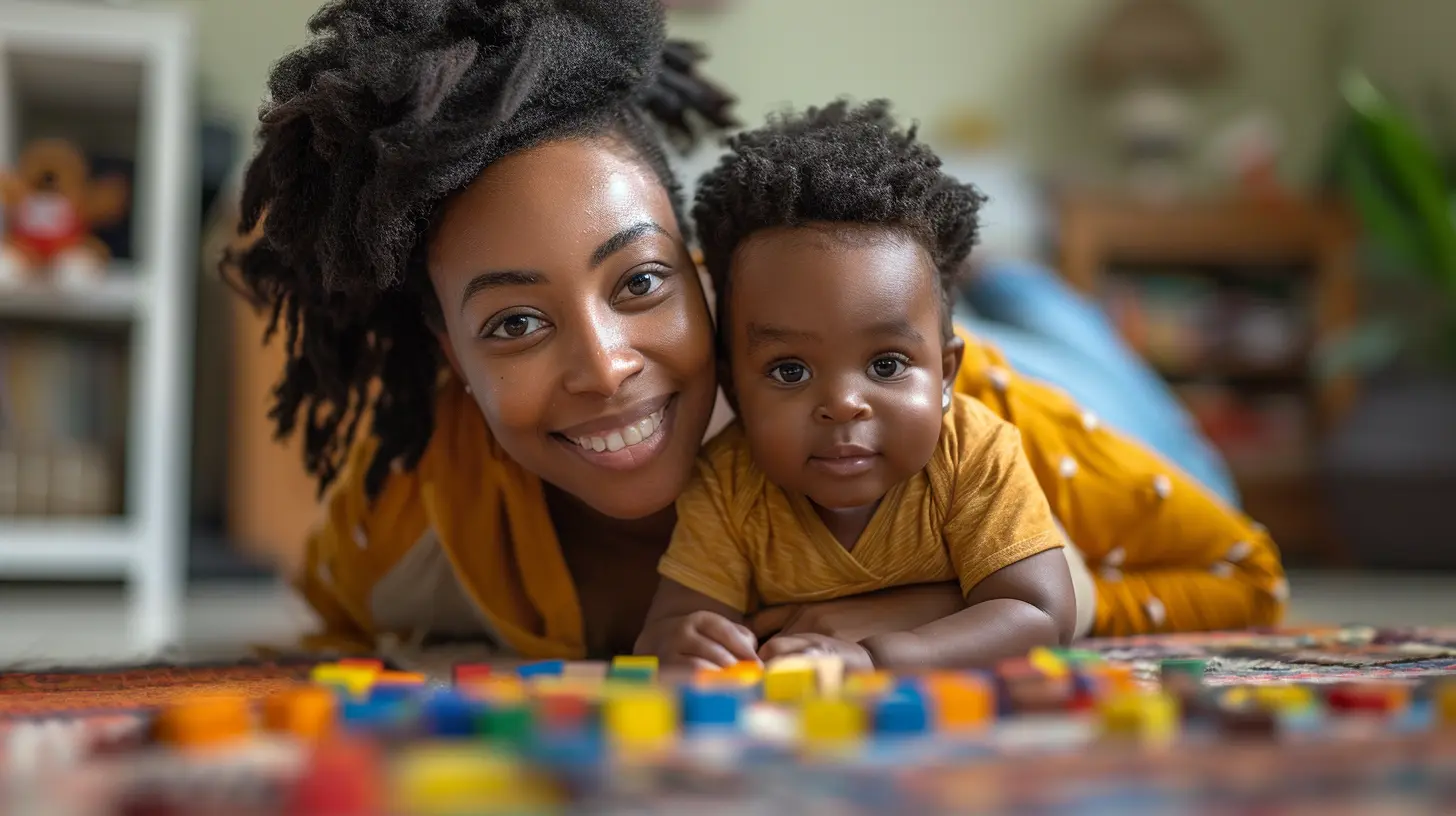
1. Talk, Talk, and Talk Some More
It might feel weird at first, chatting away to a baby who can’t talk back yet, but trust me, this is key! Babies are like sponges—they absorb everything. The more you talk to them, the more words they hear, and the faster they’ll catch on.What Should You Talk About?
Anything and everything! Narrate daily activities:- "Now, we’re changing your diaper. Wow, look at those tiny toes!"
- "Let’s get you dressed. This is your blue onesie!"
- "Time for some yummy lunch! Here comes the spoon—open wide!"
It might feel like you’re just rambling, but this constant exposure to language helps your baby connect sounds, words, and meanings over time.
Pro Tip:
Use a high-pitched, sing-songy voice (often called "parentese"). Babies love it, and it actually helps them learn language faster.
2. Get Face-to-Face and Make Eye Contact
Babies learn by watching your face. Ever noticed how they stare at you when you're talking? That’s because they’re studying your mouth, expressions, and emotions.Hold your baby close, look into their eyes, and exaggerate your words. When you say “Mama” or “Dada,” make sure they can see how your lips move. This visual cue is like a free speech lesson!
Try This:
- Mirror Game: Mimic their facial expressions and encourage them to copy yours.- Slow Motion Talking: Move your lips slowly as you pronounce words so they can catch every detail.
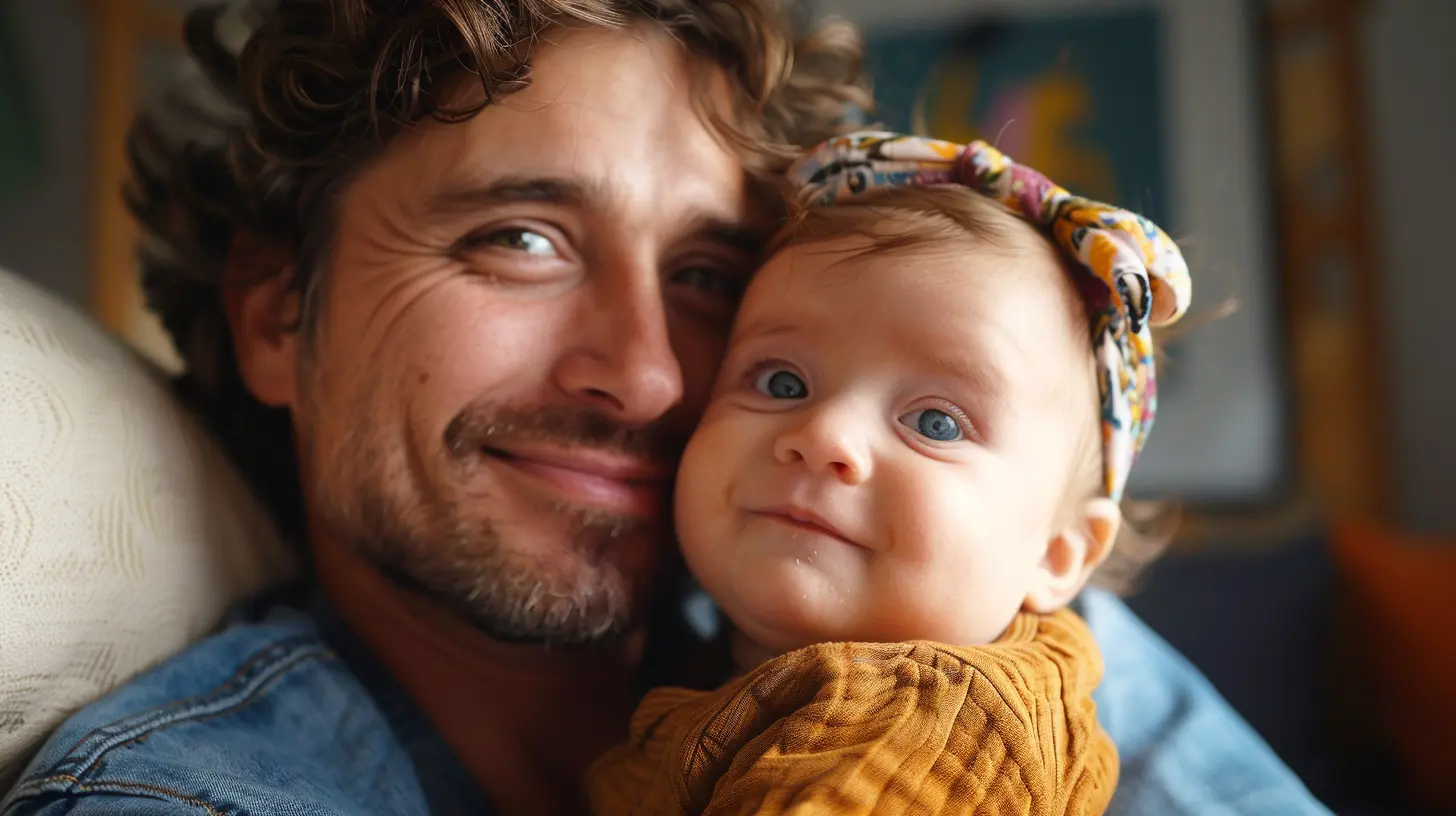
3. Respond to Their Sounds and Gestures
Every little coo, gurgle, or "ah-goo" from your baby is a form of early communication. When you respond, you’re teaching them that their voice matters.If they babble, respond enthusiastically:
- Baby: "Gaaah!"
- You: "Wow, really? Tell me more!"
Even though it might seem like gibberish, you’re reinforcing the idea that conversation is a two-way street.
Encouraging Gestures:
- If they lift their arms, say “Do you want me to pick you up?” before doing so.- When they point at an object, name it—“Oh, you want the teddy bear?”
This builds language associations, making it easier for them to use words later. 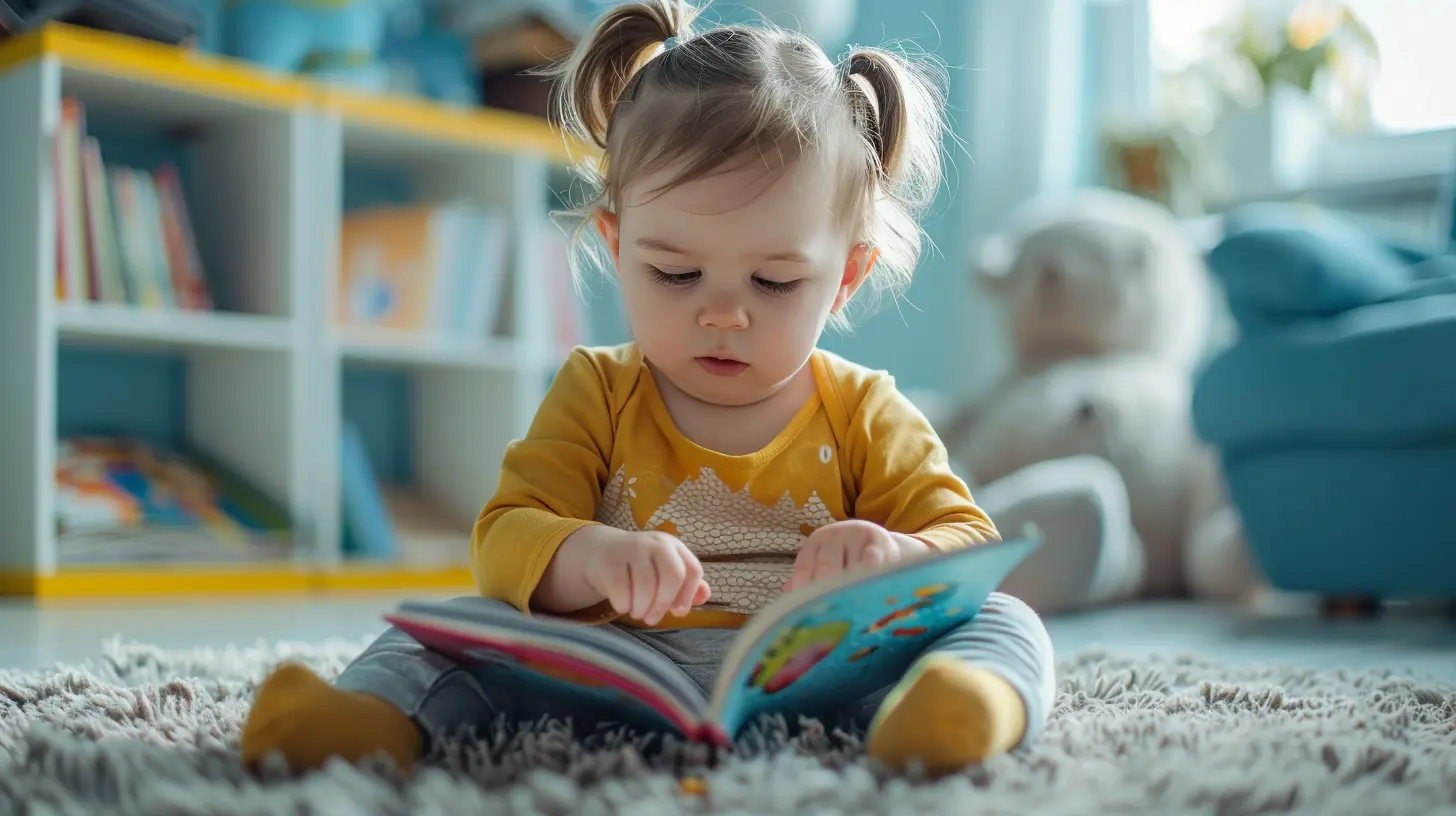
4. Read, Read, and Read Some More
Reading isn't just for bedtime—make it a daily habit. Even newborns benefit from hearing the rhythm and melody of language.Best Types of Books for Early Communication:
- High-contrast board books (for younger babies)- Books with big, bold pictures
- Interactive books with flaps or textures
- Rhyming books (Dr. Seuss? Yes, please!)
As you read, point out objects, make funny voices, and ask questions. “Where’s the puppy? Yes! There’s the puppy!” This interactive approach keeps them engaged while building word recognition.
5. Sing Your Heart Out
Don’t worry if you sound like a dying duck—your baby thinks you're a rockstar! Songs and nursery rhymes expose them to repetitive sounds and patterns, which strengthen language memory.Great Songs for Language Development:
- "Itsy Bitsy Spider" (hand motions make it fun!)- "Old MacDonald Had a Farm" (teaches animal sounds)
- "Wheels on the Bus" (action words like ‘go’, ‘stop’, ‘swish’)
Singing also slows down words, making them easier for babies to process.
6. Use Simple Sign Language
Babies understand way more than they can say. Baby sign language helps them communicate their needs before they can vocalize them.Start with basic signs like:
👉 Milk (opening and closing hand like milking a cow)
👉 More (touching fingertips together)
👉 All done (flipping hands outward)
When you say the word, do the sign simultaneously. Over time, they’ll start using the signs to express themselves—hello, fewer meltdowns!
7. Limit Screen Time
I get it—sometimes, a quick cartoon seems like the easiest solution for keeping a fussy baby happy. But here’s the deal: babies learn best from real-life interaction, not screens.The American Academy of Pediatrics recommends no screen time for babies under 18 months, except for video calls with family. Why? Because screens don’t respond in real-time the way a person does.
Instead of screen time, focus on face-to-face talking, reading, playing, or even just letting them explore the world around them.
8. Get Down and Play
Playtime isn't just about fun—it’s a full-on language boot camp! Every game, every silly face, and every peek-a-boo session builds critical communication skills.Fun Communication-Boosting Games:
- Peek-a-boo (teaches turn-taking in conversation)- Pat-a-cake (builds rhythm and coordination)
- Point-and-name games (“Where’s your nose? There it is!”)
The more interactive the game, the better. Play is how babies learn to listen, respond, and eventually talk.
9. Encourage Social Interaction
You don’t need to enroll your baby in a networking event (imagine that!), but giving them opportunities to interact with others helps foster communication.Try baby playgroups or simply letting them watch and engage with family members. Babies mimic social behaviors, so seeing other kids talking or making sounds can encourage their own language development.
10. Be Patient and Celebrate Every Milestone
Every baby develops at their own pace. Some start babbling early, others are late talkers—either way, it’s perfectly normal.The key is to be consistent with interaction and celebrate every small step. Whether it’s their first word or just a new sound, make a big deal out of it. Applause, cheers, and big hugs—babies thrive on encouragement!
If, by 18 months, your baby isn’t saying any words or responding to their name, it’s okay to check in with a pediatrician. Early intervention can be helpful in some cases.
Final Thoughts
Helping your baby develop early communication skills doesn’t require fancy toys or elaborate lessons. It’s all about talking, playing, singing, and responding with love and enthusiasm. Every giggle, every babble, and every pointing finger is a sign that they’re learning from you.So go ahead—chat their tiny ears off and watch them blossom into little talkers before your eyes!
all images in this post were generated using AI tools
Category:
Infant DevelopmentAuthor:

Maya Underwood
Discussion
rate this article
4 comments
Cynthia Pratt
Great article! Engaging in regular eye contact and responding to your baby’s coos can really enhance communication. Also, incorporating simple songs and rhymes makes learning fun. Early interactions lay a strong foundation for language development—thank you for sharing these tips!
April 30, 2025 at 4:40 PM

Maya Underwood
Thank you for your kind words! I'm glad you found the tips helpful for fostering early communication skills.
Justice Cruz
Great tips! Encouraging early communication lays the foundation for confident and effective speaking skills.
April 12, 2025 at 4:01 PM

Maya Underwood
Thank you! I'm glad you found the tips helpful. Early communication truly is key to building strong speaking skills!
Thalia McCaw
This article offers valuable insights into nurturing early communication skills. Engaging in responsive interactions and creating a language-rich environment are crucial strategies that lay a strong foundation for future development.
April 10, 2025 at 2:52 PM

Maya Underwood
Thank you for your thoughtful comment! I'm glad you found the strategies helpful in supporting early communication skills.
Zelda Walker
Early interaction is key—talk, read, and engage!
April 6, 2025 at 2:52 PM

Maya Underwood
Absolutely! Early interactions lay the foundation for strong communication skills—so keep talking, reading, and engaging with your little one!
